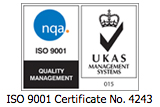Does the Construction Industry Need an ACOP?
One of the major talking points of the Construction Industry Advisory Committee’s (CONIAC) meeting in November 2015 was the almost unanimous conclusion that the most recent Construction Design and Management (CDM) regulations did not need an Approved Code of Practice (ACOP). Although the final decision whether or not an ACOP is needed lies with the Health and Safety Executive (HSE), it already feels as though the CDM is entering a brave new world.
But is this the correct direction for the CONIAC, and the wider industry to take? The major argument opposing the ACOP is the favourable reception enjoyed by the CDM 2015 since it was introduced a little under a year ago. The comprehensive regulations set about by the CDM have rendered the ACOP completely redundant in the eyes of many.
There had already been whispers of the ACOP being shown the door. In August 2014, a HSE board paper suggested they were considering shortening the ACOP. Even further back, the Lofstedt Review of health and safety regulations in 2012 stipulated that all future ACOPs should add value, be short in length and simply offer signposting guidance.
Perhaps the main factor which contributed towards CONIAC’s decision is the general feeling that an ACOP alongside a CDM might be confusing for SMEs or smaller duty holders and domestic clients. In the interest of clarity, the majority of CONIAC members seem to agree that the CDM alone will suffice.
Part of the intention of the CDM 2015 is to clear any confusion created by the different sets of regulations, covering all aspects of construction and the duties required of a CDM coordinator, in an easier-to-comprehend guide.
However, detractors of the possibility of removing the ACOP suggest that doing so could, in fact, lead to greater confusion amongst smaller duty holders and domestic clients. Necessitating that a greater number of people need to comprehend the CDM, however experienced or inexperienced the personnel. With this in mind, the opposition believe that there is greater need for sub sector guidance and information.
Additionally as injuries and fatalities continue to beset the construction industry as the CDM expands, it can be argued that the whole sector needs as much assistance as possible. It will be interesting to see which side of the debate the HSE lands on when it makes the decision in the coming months.
One thing that won’t change however is the need for high quality health and safety supplies and equipment. For the full Manchester Safety Services selection, click here, or call our dedicated team on 01706 364943.






